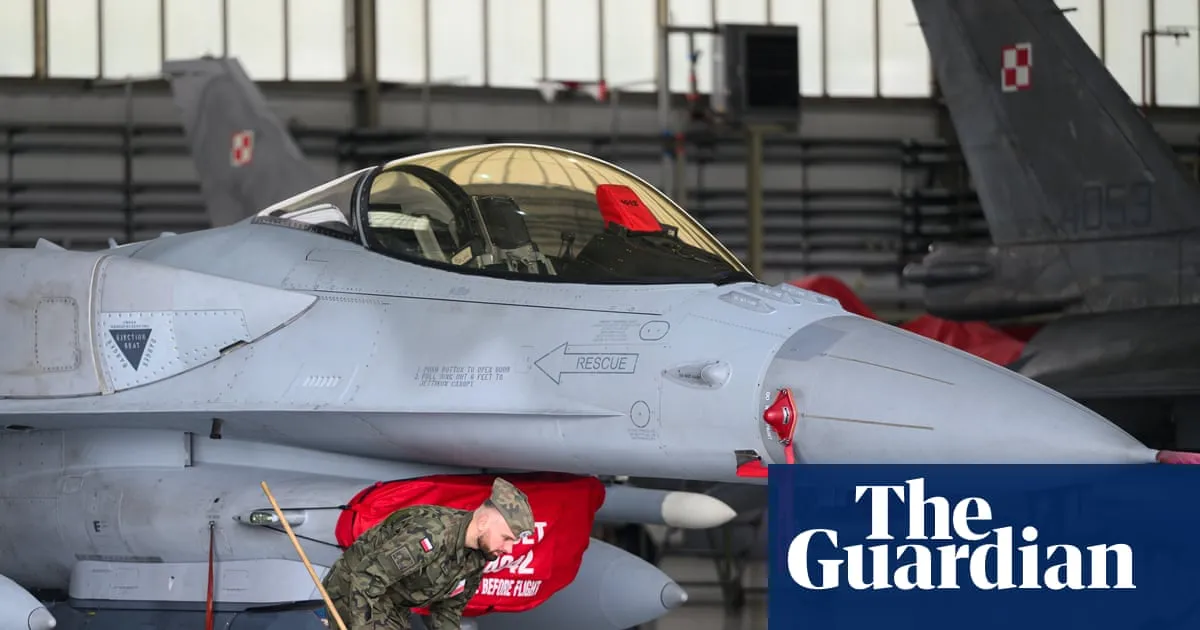
Poland's airspace has recently become a focal point of military activity due to heightened tensions stemming from the ongoing conflict in Ukraine. In response to the threat of drone strikes from neighboring Ukraine, Polish and allied aircraft were deployed in a preventive operation. This operation led to the temporary closure of Lublin airport, located in eastern Poland, as authorities took necessary precautions to ensure the safety of citizens.
The alert was issued on Saturday and lasted approximately two hours. This incident followed a worrying event on Wednesday when multiple Russian drones crossed into Polish territory. The incursion prompted NATO to respond by sending fighter jets to intercept and shoot down the drones, highlighting long-standing concerns regarding the expansion of Russia's conflict in Ukraine, which has been ongoing for over three years.
In a statement on social media platform X, the Polish military’s operational command confirmed that both ground-based air defense and reconnaissance systems were placed on high alert. They emphasized that these actions were "preventive in nature," primarily aimed at securing Poland's airspace and safeguarding its citizens. The command mentioned the specific threat of drone strikes in regions of Ukraine that are adjacent to Poland but refrained from providing detailed information.
Polish Prime Minister Donald Tusk also addressed the media, announcing that "preventive air operations" had commenced in Polish airspace due to the risks posed by Russian drones operating in nearby Ukrainian regions. The Polish Air Navigation Services Agency confirmed the closure of Lublin airport, citing "military aviation activities" as the reason for the disruption. Additionally, the government security center warned of a potential air attack threat affecting several border counties in the region.
Later that same day, the military's operational command updated the situation on X, stating that the operation had been successfully completed and that ground-based defense and reconnaissance systems had returned to normal operations. In response to the recent incursions, Russia has claimed that it did not intentionally target Poland during the drone incidents. Furthermore, Belarus, a close ally of Russia, suggested that the drones may have strayed off course due to jamming. However, European leaders remain skeptical, asserting that these incursions were likely a deliberate provocation by Russia.
In light of these events, Polish aircraft have frequently been scrambled in recent months to patrol the country's airspace due to ongoing Russian airstrikes in Ukraine. Notably, these strikes typically occur during the night or early morning hours. In a related development on Saturday, Romania—a NATO member that shares a border with Ukraine—reported a breach of its airspace by a Russian drone. The Romanian defense ministry stated that the drone incursion coincided with a Russian attack on infrastructure in Ukraine. After the breach was detected, Romania scrambled two F-16 fighter jets to monitor the situation. The aircraft successfully tracked the drone until it disappeared from radar near the village of Chilia Veche.
This series of incidents underscores the growing complexities and dangers in the region as the conflict in Ukraine continues to evolve, prompting neighboring countries to enhance their military readiness to address potential threats.